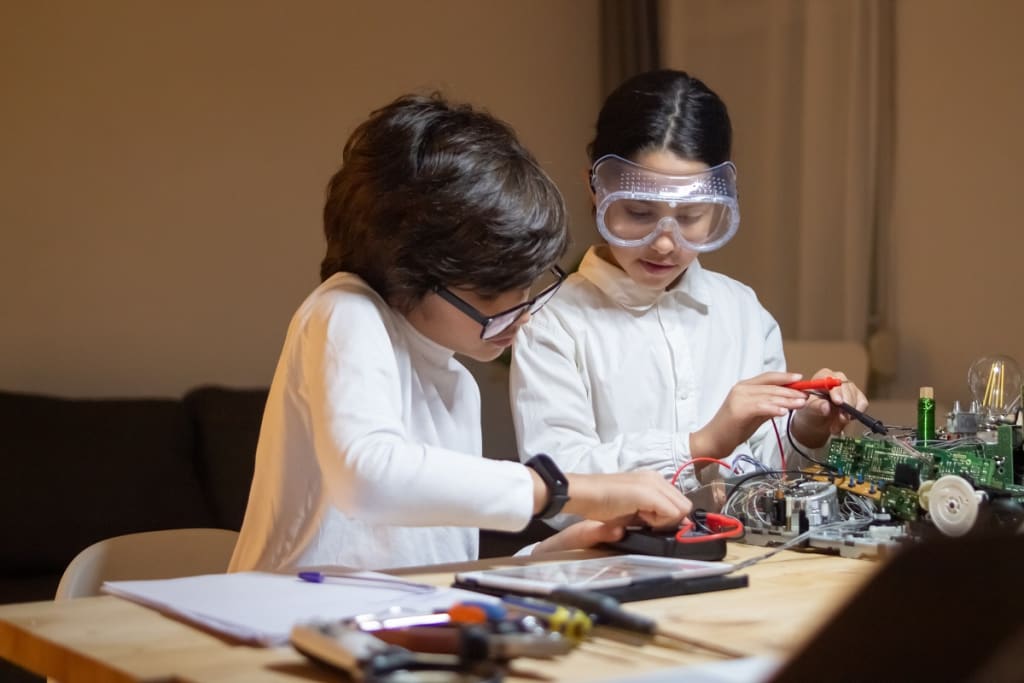The Impact of Electronics on Modern Society
Exploring the Benefits, Challenges, and Future of Electronics in Our Daily Lives

Introduction
The world of electronics has revolutionized the way we live, work, and interact with one another. From smartphones to laptops to smart homes, electronics have become an essential part of our daily lives. In this article, we will explore the impact of electronics on modern society and how they have transformed the way we live.
The Benefits of Electronics in Daily Life

Communication
Electronics have revolutionized communication, making it easier than ever to stay connected with people all around the world. Smartphones, social media, and instant messaging apps have made communication more convenient and efficient, allowing us to connect with loved ones, colleagues, and friends with ease.
Entertainment
Electronics have also transformed the way we entertain ourselves. From streaming services to video games to virtual reality, electronics have made it possible to access a wide range of entertainment from the comfort of our homes. They have made it easier than ever to consume media, whether it be movies, music, or television shows.
The Impact of Electronics on the Workplace
Efficiency
The integration of electronics into the workplace has had a profound impact on businesses, significantly improving efficiency and productivity. The use of computers, software programs, and automation tools has enabled businesses to streamline processes and reduce the time required to complete tasks. For instance, project management software has made it possible to manage complex tasks and projects more efficiently, while inventory management systems have enabled businesses to track inventory levels and supply chain information in real-time. Furthermore, automation tools such as chatbots and artificial intelligence (AI) algorithms have enabled businesses to perform complex tasks with accuracy and speed, saving time and resources.
Overall, electronics have transformed the workplace, enabling businesses to operate more efficiently and effectively while providing employees with greater flexibility and work-life balance. As technology continues to advance, we can expect to see even more profound changes in the way we work and interact with one another, shaping the future of work for years to come.
Flexibility
The advent of electronics has transformed the concept of work, making it possible for employees to work from anywhere and at any time. With the help of laptops, smartphones, and other mobile devices, employees can work remotely, increasing flexibility and productivity. This has proven to be particularly useful for businesses operating in multiple locations, enabling them to expand their reach and operate globally.
The ability to work remotely has enabled businesses to tap into a wider pool of talent, regardless of geographical location. It has also enabled businesses to reduce overhead costs by eliminating the need for a physical office space. Remote work has also proven to be beneficial for employees, providing them with greater flexibility and work-life balance. This has resulted in increased job satisfaction and productivity, as employees are better able to manage their work and personal lives.
However, the shift towards remote work has also highlighted the need for effective communication and collaboration tools. Businesses must invest in tools and technologies that enable seamless communication and collaboration among remote teams. This includes video conferencing software, project management tools, and cloud-based file-sharing systems.
The Challenges of Electronics in Modern Society
Dependence
As electronics have become more prevalent in our daily lives, there is a growing dependence on these devices. This dependence can lead to addiction and affect mental health, with people becoming too reliant on technology for communication, entertainment, and work.
Environmental Impact
Electronics also have an environmental impact, with the production and disposal of these devices contributing to pollution and waste. The use of electronics also increases energy consumption, leading to a higher carbon footprint.
Conclusion
In conclusion, electronics have had a significant impact on modern society, transforming the way we communicate, entertain ourselves, and work. They have made it possible to be more efficient and productive, increasing flexibility and expanding businesses' reach. However, there are also challenges associated with electronics, including dependence and environmental impact. As we continue to navigate the world of electronics, it is important to recognize both the benefits and challenges they bring and work towards developing sustainable and responsible practices.
About the Creator
Lily James
I am blessed with a funny gene that makes me enjoy life to the fullest.






Comments
There are no comments for this story
Be the first to respond and start the conversation.